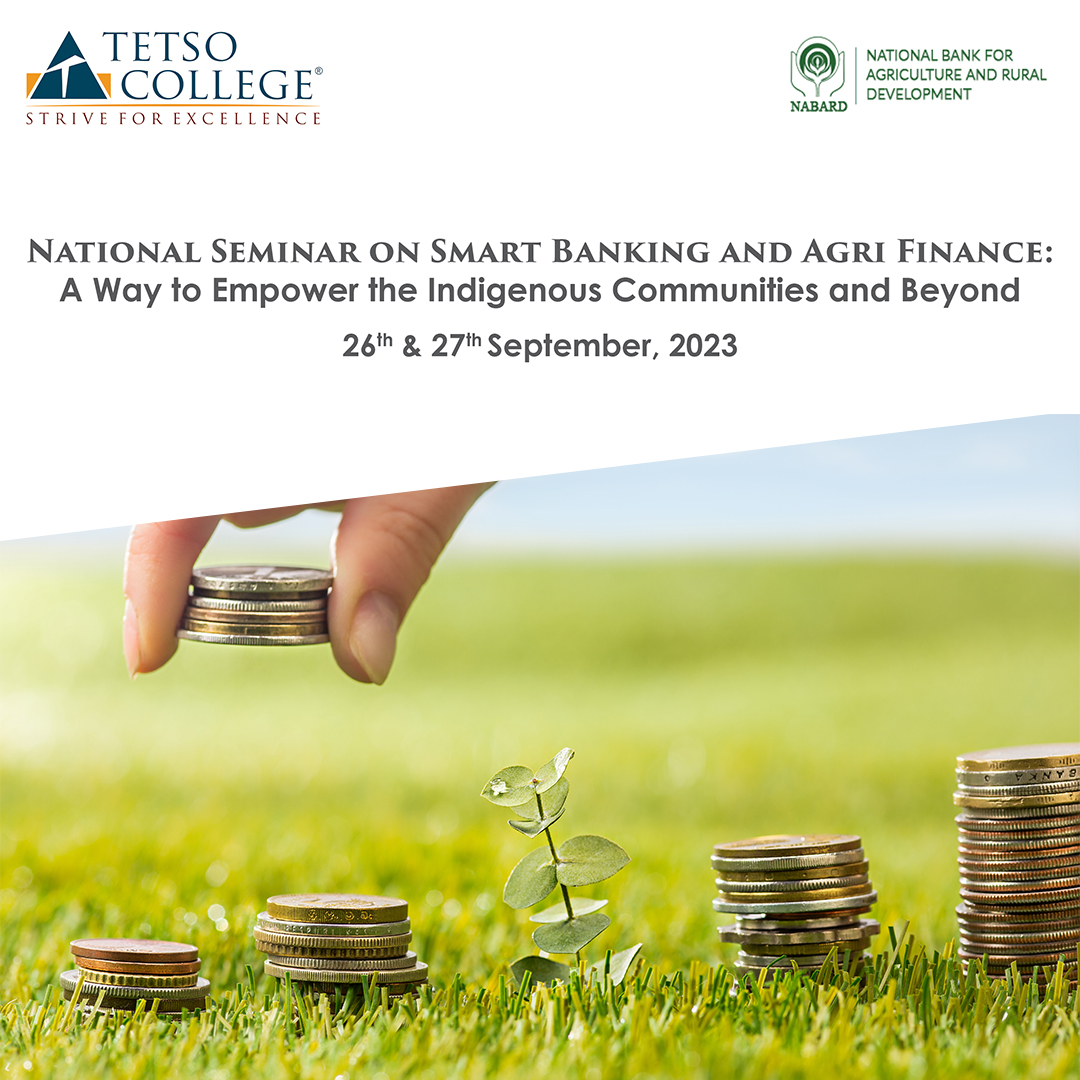Concept Note
The agriculture sector is one of the key sectors that play a critical role in the economic development and poverty reduction of a country. In India, 54.6% (as per Census 2011) of its total population is engaged in agriculture, while around 70% of the population in the North-Eastern Region (NER) is involved in agriculture and allied activities. In India NER has the largest concentration of Indigenous communities in India comprising the 8 states – Nagaland, Arunachal Pradesh, Mizoram, Meghalaya, Manipur, Assam, Sikkim and Tripura. For the Indigenous communities residing in these states, agriculture
is considered as one of the primary sources of livelihood. However, it is a known fact that agriculture is subject to seasonality and the growing periods of the crops. While traditional methods such as terrace, and Jhum cultivation continue to be practiced,
with rapid technological advancement taking place, the agricultural scenario in these communities has also evolved and opened up numerous avenues for expanding agricultural techniques and productivity.
But despite such development, agricultural financing, in India and specifically for the indigenous communities, continues to be one of the most challenging areas for the banking sector and other lending institutions mainly because agricultural enterprises/farmers are significantly affected by factors such as weather, pests, diseases, price fluctuations, climate changes, etc., which are beyond their control and which increases the risk factor. However, agricultural finance and smart banking facilities are essential for increasing productivity, processing and marketing and more importantly, addressing the needs of the various elements that constitute the sector such as farmer’s and entrepreneur’s needs, infrastructural facilities, value chain, market
ecosystem, and the presence of support systems. The development of this sector will also be crucial in meeting the 17 new Sustainable Development Goals (SDGs) such as eradicating poverty, removing all forms of hunger, responsible consumption and production, etc.
Thus, this seminar aims to explore the challenges and opportunities in leveraging technology and innovation to enhance banking services and agricultural financing. The seminar is targeted to a broad audience of academicians, practitioners, policymakers, and researchers to discuss and deliberate on the potential of smart banking and agri finance in driving economic growth, fostering financial inclusion, and ensuring sustainable agricultural development, in empowering indigenous communities and beyond.
Objectives:
- To create awareness about the significance of technology in the banking sector and technological transformations which were taking place in the banking sector, both internationally and nationally.
- To Provide knowledge on agri finance to the farmers and other stakeholders for sustainable development of agriculture, including crop production, cooperation, forestry, agricultural engineering, community science, and other allied disciplines by integrating education, research and extension.
Expected outcome:
- To enhance understanding of the potential of smart banking and agri finance in driving economic growth and financial inclusion.
- To Strengthen collaboration between stakeholders from the banking and agriculture sectors.
- To recommend Policies to address regulatory challenges and create an enabling environment for smart banking and agri-finance.
- To Disseminate knowledge through handbook for the policy makers.
Themes and Sub-theme:
Agri-Finance
- Role of Agricultural banks in the development of agricultural sectors.
- Problems and challenges faced by the farmers/indigenous communities in agri-finance.
- Impact of agricultural sectors on the GDP of the Nation.
- Sustainable development of farmers/indigenous communities with special emphasis on finance.
- Promoting the green revolution for the growth of agricultural sectors by the banks.
- Water resource planning and management, irrigation, and water usage Agricultural product tracking and food security through agri-finance.
- Other sub-themes related to Agriculture
Banking
- Emerging Trends in Smart Banking
- Role of Digitization in Banking
- Compliance-Responding to the new regulation
- Changing Customer Expectation-Bank response
- MSME Financing-Issues and Challenges
- Agricultural Financing- Issues and Challenges
- FPO Financing-Challenges in providing financial access
- Financial Literacy and Financial Education
- Role of RRB in development banking- Opportunities and challenges
- Role of Cooperative Banks in development banking- Opportunities and Challenges
- Role of MFIs/NBFCs in providing access to the financially excluded
- Other sub-themes related to banking.
Participation
Faculty, academicians, industrialists, research scholars and students can participate and present papers in the seminar. No TA/DA will be provided. Participants have to make their own accommodations.
Paper Submission Guidelines
- The paper must contain the full title of the article, names of the author and co-author(s) if any.
- The papers must be in MS Word with Times New Roman Font.
- The Font size Shall be 12 with a line spacing of 1.5.
- The abstract must contain a maximum of 200 – 300 words with 3-6 keywords and the full paper preferably should be 3000 – 4000 words.
- Referencing must be done in the APA 7th Edition style.
- Selected papers will be published in the form of an edited book with an ISBN.
- Moreover, Selected papers will be published in Scopus/UGC care listed/Peer reviewed Journals with an additional publication fee.
Note: The paper should not have more than two authors. All papers will be subjected to peer review by an expert committee. Plagiarism is strictly denounced. Hybrid mode is not applicable for Dimapur and Chumoukedima District Participants.
Selected papers will be notified through e-mail within three days from the date of submission of the full paper. Send your abstracts and papers to comnationalseminar@tetsocollege.org
Registration fee
Industrialists and Business: Rs. 600
Faculty and Academicians: Rs. 500
Students and Research Scholars: Rs. 300
Participants without paper – Rs. 200
Registration fee for all categories (In absentia) – Rs. 700
Registration is compulsory for all authors and participants.
(Payment can be made through online.)
Registration Link: removed
Payment Link: removed
Bank Details:
A/c Name: TETSO COLLEGE
A/C No.: 50200031572768
Bank Name: HDFC BANK LTD.
IFSC: HDFC0004368
Important dates
Submission of Abstract: 16/09/2023
Submission of Full Paper: 21/09/2023
Date(s) of the National Seminar: 26 & 27 Sept. 2023.







